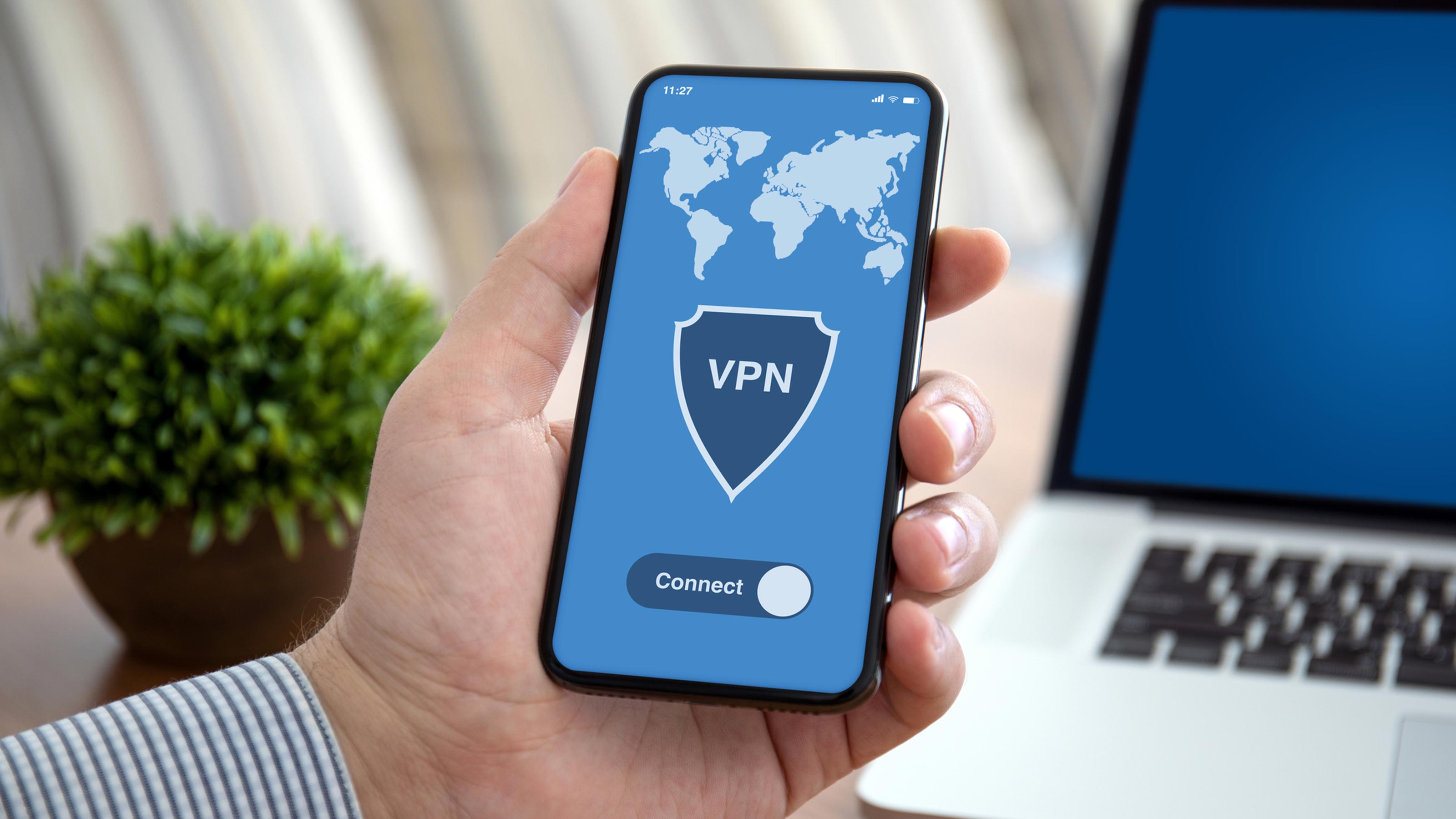5 Keys to Keeping Your Data Secure
Protect yourself from would-be identity thieves.

Profit and prosper with the best of Kiplinger's advice on investing, taxes, retirement, personal finance and much more. Delivered daily. Enter your email in the box and click Sign Me Up.
You are now subscribed
Your newsletter sign-up was successful
Want to add more newsletters?

Delivered daily
Kiplinger Today
Profit and prosper with the best of Kiplinger's advice on investing, taxes, retirement, personal finance and much more delivered daily. Smart money moves start here.

Sent five days a week
Kiplinger A Step Ahead
Get practical help to make better financial decisions in your everyday life, from spending to savings on top deals.

Delivered daily
Kiplinger Closing Bell
Get today's biggest financial and investing headlines delivered to your inbox every day the U.S. stock market is open.

Sent twice a week
Kiplinger Adviser Intel
Financial pros across the country share best practices and fresh tactics to preserve and grow your wealth.

Delivered weekly
Kiplinger Tax Tips
Trim your federal and state tax bills with practical tax-planning and tax-cutting strategies.

Sent twice a week
Kiplinger Retirement Tips
Your twice-a-week guide to planning and enjoying a financially secure and richly rewarding retirement

Sent bimonthly.
Kiplinger Adviser Angle
Insights for advisers, wealth managers and other financial professionals.

Sent twice a week
Kiplinger Investing Weekly
Your twice-a-week roundup of promising stocks, funds, companies and industries you should consider, ones you should avoid, and why.

Sent weekly for six weeks
Kiplinger Invest for Retirement
Your step-by-step six-part series on how to invest for retirement, from devising a successful strategy to exactly which investments to choose.
Chances are, you may have been swindled at some point in your life, or you know someone who has. Nearly half of consumers surveyed recently by Stanford University's Center on Longevity and the Finra Investor Education Foundation reported being a victim of financial fraud in the previous year—a far higher tally than earlier surveys indicated. No socioeconomic or demographic group is immune. "Men and women, college students and retirees, rich and poor—all are potential targets," the report's authors found. Nearly 40% of victims never told anyone about the fraud.
Estimates are problematic, but Americans are thought to lose some $50 billion a year to financial scams. And there are indirect costs: bounced checks, late fees, trouble meeting monthly expenses and even bankruptcy. So it's not surprising that the emotional cost of fraud is also high, with 50% of victims reporting severe stress and more than one-third citing depression. The toll is compounded for senior victims, who have little time to make up for lost resources. "When elderly people lose their life savings, they lose hope," says Ricky Locklar, an investment fraud investigator at the Alabama Securities Commission. "To me, those crimes are worse than someone robbing the corner drugstore at gunpoint."
Here's how to keep your data secure:
From just $107.88 $24.99 for Kiplinger Personal Finance
Become a smarter, better informed investor. Subscribe from just $107.88 $24.99, plus get up to 4 Special Issues

Sign up for Kiplinger’s Free Newsletters
Profit and prosper with the best of expert advice on investing, taxes, retirement, personal finance and more - straight to your e-mail.
Profit and prosper with the best of expert advice - straight to your e-mail.
1. Play it safe at the ATM. Cover the keyboard with your hand when you enter your PIN—a camera may be recording your keystrokes, which thieves can later match with your payment-card data.
2. Check bank and credit card accounts. At least once a week, look for suspicious charges. Sign up to receive alerts when your bank account balance falls below a threshold you specify, say, or when a charge higher than a certain amount goes through on your card.
3. Head off ID thieves. Go to www.annualcreditreport.com to get free yearly reports from each of the three major credit bureaus. Check for accounts you don't recognize and other red flags. Or enroll in a service that monitors your credit reports. If you're worried about a breach, consider placing a freeze on your reports with each bureau. New creditors will be unable to view them, minimizing the chances that thieves will be able to open new credit accounts in your name (see The Equifax Data Breach: What You Should Do).
4. Watch for tax and medical ID theft. Fight tax ID theft by filing your tax return as early as possible. Doing so may block any thieves who want to use your Social Security number to file a return in your name and collect a refund. Signs of medical ID theft include treatments or services you never used appearing on bills or explanations of benefits.
5. Don't fall for phishing expeditions. Be on guard for phone calls or e-mails from fraudsters posing as representatives from your bank, the IRS or other entities. If you're unsure of an e-mail or text message, don't click on links within it, which could install malware on your device or lead to a scam website.
Profit and prosper with the best of Kiplinger's advice on investing, taxes, retirement, personal finance and much more. Delivered daily. Enter your email in the box and click Sign Me Up.

Lisa has been the editor of Kiplinger Personal Finance since June 2023. Previously, she spent more than a decade reporting and writing for the magazine on a variety of topics, including credit, banking and retirement. She has shared her expertise as a guest on the Today Show, CNN, Fox, NPR, Cheddar and many other media outlets around the nation. Lisa graduated from Ball State University and received the school’s “Graduate of the Last Decade” award in 2014. A military spouse, she has moved around the U.S. and currently lives in the Philadelphia area with her husband and two sons.
-
 The New Reality for Entertainment
The New Reality for EntertainmentThe Kiplinger Letter The entertainment industry is shifting as movie and TV companies face fierce competition, fight for attention and cope with artificial intelligence.
-
 Stocks Sink With Alphabet, Bitcoin: Stock Market Today
Stocks Sink With Alphabet, Bitcoin: Stock Market TodayA dismal round of jobs data did little to lift sentiment on Thursday.
-
 Betting on Super Bowl 2026? New IRS Tax Changes Could Cost You
Betting on Super Bowl 2026? New IRS Tax Changes Could Cost YouTaxable Income When Super Bowl LX hype fades, some fans may be surprised to learn that sports betting tax rules have shifted.
-
 What Is AI? Artificial Intelligence 101
What Is AI? Artificial Intelligence 101Artificial intelligence has sparked huge excitement among investors and businesses, but what exactly does the term mean?
-
 Text-Generating AI Faces Major Legal Risks: Kiplinger Economic Forecasts
Text-Generating AI Faces Major Legal Risks: Kiplinger Economic ForecastsEconomic Forecasts Major legal risks to text-generating artificial intelligence: Kiplinger Economic Forecasts
-
 Add a VPN to Surf the Internet Safely
Add a VPN to Surf the Internet SafelyTechnology To help you fight identity theft, consider adding a VPN.
-
 Best Video Apps for Staying in Touch
Best Video Apps for Staying in TouchTechnology We rate five video-chat platforms for user-friendliness and security features.
-
 13 Things That May Soon Disappear Forever (The Pandemic Edition)
13 Things That May Soon Disappear Forever (The Pandemic Edition)Technology Emerging technologies (and now the COVID-19 pandemic) are putting an end to these familiar items and practices.
-
 Another COVID-19 Victim: The Touch Screen
Another COVID-19 Victim: The Touch ScreenTechnology Consumers will look askance at anything they’re asked to touch, leading to a surge in app usage and other alternatives to contacting public screens.
-
 12 Ways COVID-19 Will Change the Tech Industry
12 Ways COVID-19 Will Change the Tech IndustryTechnology
-
 Drone Delivery Gets Closer to Reality
Drone Delivery Gets Closer to RealityTechnology What’s that up in the sky? A bird? A plane? Nah, just your drugstore order.